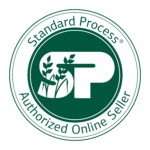"We provide motivated individuals the nutritional tools and chiropractic services to overcome their health challenges and achieve an optimal state of health"
Functional Testing
In our office, our team is dedicated to offering nutritional protocols that target the root causes of chronic health issues. We have observed that nutrient deficiencies, heavy metal toxicity, chemical endocrine disruptors, and compromised glandular messaging are common culprits behind many health problems. To gain a deeper understanding of your body's specific nutritional requirements, we offer comprehensive functional testing, providing invaluable insights into your health needs.
Rest assured, our commitment to your well-being is unwavering, and we are here to guide you on your journey towards improved health and vitality.

Hair Mineral Analysis and Interpretation
Supplementing with key food factors and increasing nutrient absorption can help many children who cannot think clearly, are not developing and reaching appropriate ...

Hormone Testing (Saliva) and Interpretation
Saliva testing measures free, unbound hormone levels, which is often much more useful than blood testing for determining the hormonal needs of the body. The ...

Functional Thyroid/Inflammation Panel and Interpretation
This is a well-rounded test panel that gives valuable information about various functions of the body’s hormonal and digestive systems. The panel includes: CBC ...

Food Sensitivities – LRA by ELISA/ACT (Enhanced Basic)
This test can help identify 134 common foods, plus chemicals, preservatives and molds, that could be overburdening your immune system, and preventing it from ...









